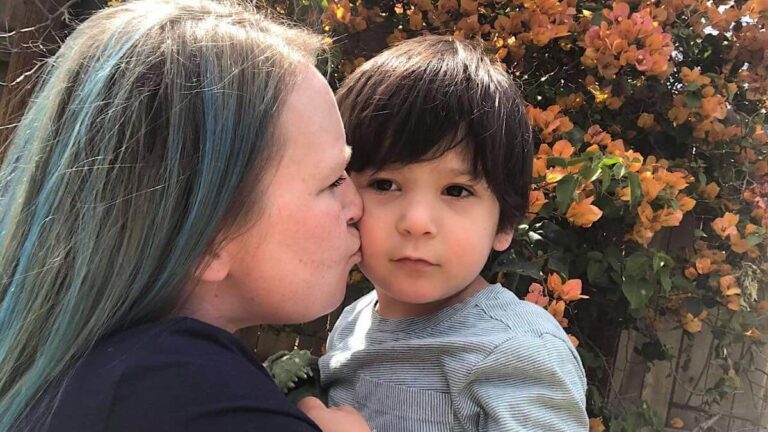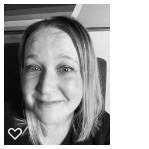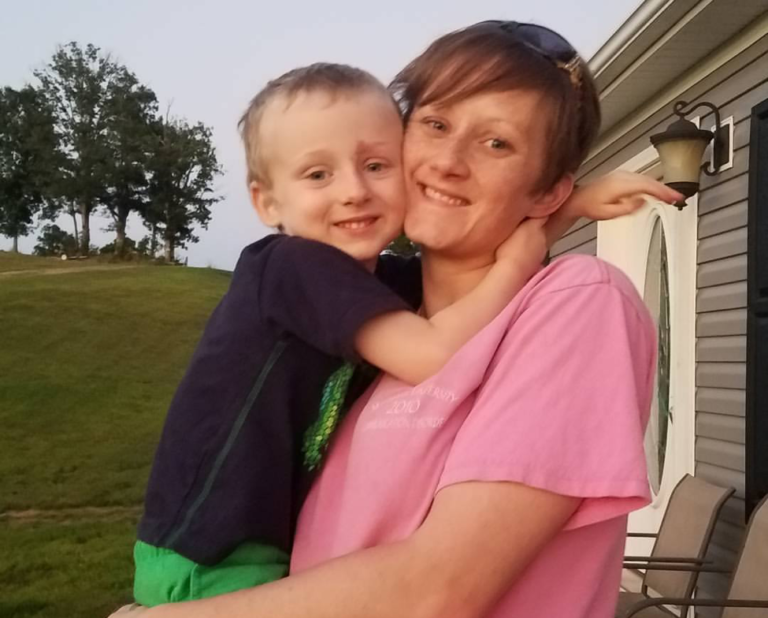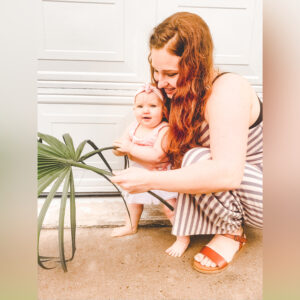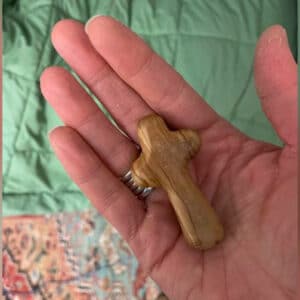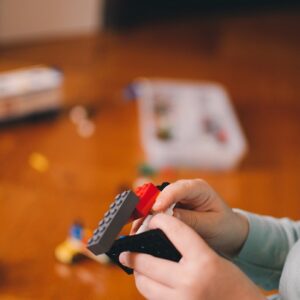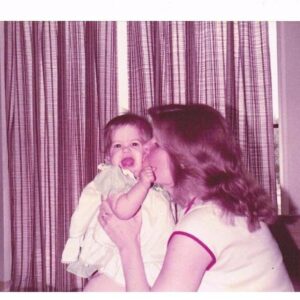From the moment you get news of a baby on the way, a mother’s focus is on the best way to take care of this beautiful little human. We read books, talk to other mothers, restrict our diet, and wonder what it will be like when we meet our baby. We often worry if we are making the right choices and if we mothering correctly.
After we hold our baby, we focus on mothering. Is the baby sleeping enough? Should we breastfeed or bottle-feed, when should they try their first bite of solid food, and are they meeting their milestones? We put aside our own needs to make space to care for another with our whole heart.
When we started having indicators that our son Nixon was not meeting his milestones, we talked to professionals. We started down a long list of discussions with teachers, doctors, speech therapists, occupational therapists, and family members about all the cants.
The fact that our son didn’t meet the markers for a neurotypical development line of milestones and the deep, rich feelings of mom guilt hit like a truck.
I recently came across an article titled, “Research Partnership Explores Bond Between Mothers and Nonspeaking Autistic Children.”
Researchers at UC Santa Cruz and the University of Virginia researched and developed a better understanding of autism through a study that fundamentally challenged them to reimagine the concepts associated with social connections.
RELATED: Life With Nonverbal Autism is Often a Guessing Game
“The research team conducted in-depth interviews with 13 mothers of nonspeaking autistic children to uncover both the conventional and unconventional ways that autistic children and their parents form strong bonds.”
Prior research has highlighted that autistic individuals have a strong desire for social connections.
The study wanted to “challenge the popular ‘deficit view’ of autism that describes the condition in terms of impairments relative to neurotypical development. UCSC psychology professor Nameera Akhtar added that the key to flipping the script when looking at autism is to ‘see the person that’s there,’ which mothers in the study demonstrated in a variety of ways. One of the major trends identified in the research was that mothers attributed rich personalities to their nonspeaking autistic children, providing a crucial lens through which to interpret their behavior.”
The beauty of this study highlighted how mothers believed in their children’s desire to connect. That they reframed challenging behavior to something outside their children’s control.
Also, the ability to feel connected depends on views of the behavior rather than the behavior itself. Mothers in the study highlighted the importance of the assumption of competence of their children.
They also described how important it is to come to an acceptance of an autism diagnosis. This allows mothers to focus on building strong relationships with their children rather than changing them.
We all walk through stages after hearing or reading the words for the first time—autism spectrum disorder. We often land in a place of fear, longing, confusion, failure, and heartache. We often find ourselves worrying late at night if we are doing all we can to walk through all those feelings.
We fight uphill battles of questions, forms, talks about behavior, and often think about what they can do.
We see the magic of the close examination of the world through our children’s eyes, of the joy found with a simple rainfall, or the beauty in a perfectly matched pitch from a small tiny voice. Often the connection is not met with words but a shared space between a mother and a child.
As I think back at holding my tiny baby boy and the autism journey we have been on, I am grateful for our connection.
For the way he would sit with me on the couch and put his tiny hand in mine and how he will carry a small rock with such pride as if he was given a piece of the Earth as a gift.
RELATED: Mommy Always Makes it Better, So Why Can’t I?
I think of our beautiful daughter and how she will watch one tiny drop of water fall from her hand into a huge bath, how she holds a crayon and carefully tests it on her skin to see if it makes a mark. She gently leans in for a kiss on the cheek after being buckled into her car seat.
The study highlights the critical misconception that children on the spectrum shy away from close connections, but the facts are that mothers feel this intimate connection with their children. Words aren’t necessary to understand who our children are.
We are lucky as mothers of children on the spectrum to live in the vibrations of this connection. To take in the nonverbal communication and feel the relationship that is whirling in around it.
Originally published on Finding Cooper’s Voice

If you liked this, you'll love our book, SO GOD MADE A MOTHER available now!
Order NowCheck out our new Keepsake Companion Journal that pairs with our So God Made a Mother book!
Order Now


